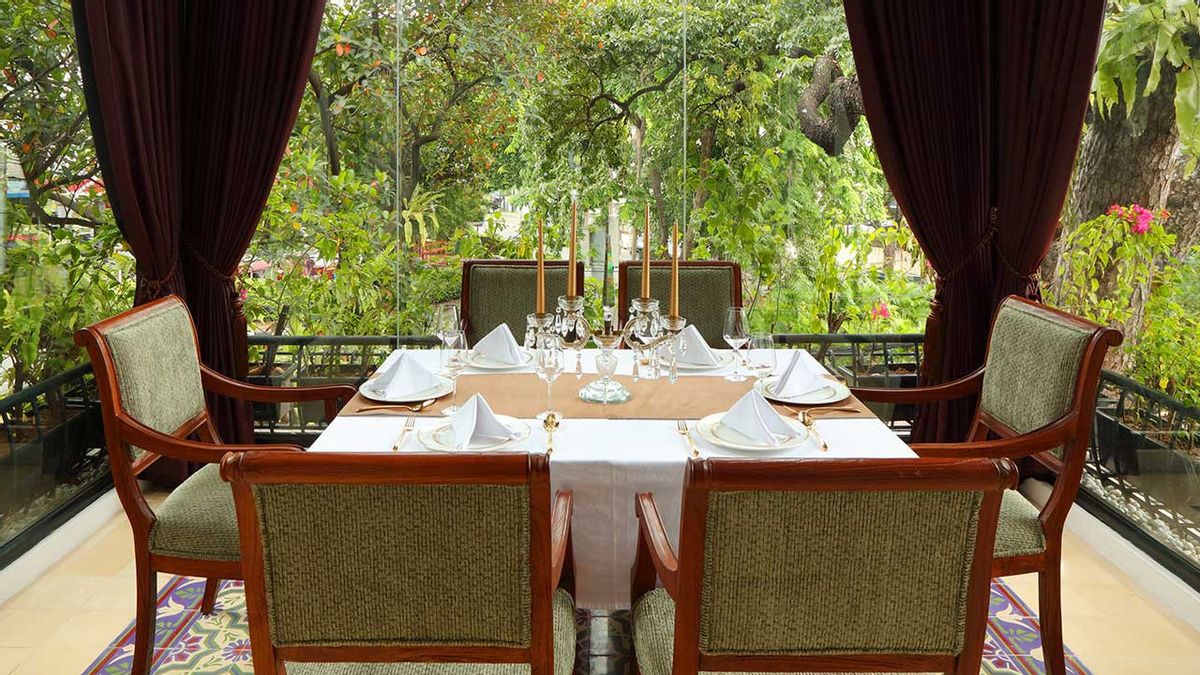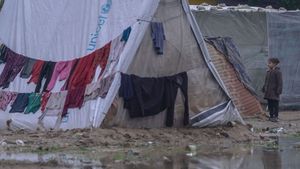JAKARTA - Act for Farmed Animals (AFFA) activists gathered outside the Plataran Menteng on HOS Cokroaminoto, a street in Jakarta, demanding the hospitality giant commit to stop using eggs produced by hens confined in tiny cages across all of its 81 properties. The protest, which was part of the #PlataranForAnimals campaign, drew attention to animal welfare concerns through its performance.
The performance showed a cardboard cutout of a businessperson trying to grab an “award” held by a hen, symbolizing how Plataran has failed to address animal welfare despite having received many awards, such as the Sustainable Destinations Top 100. Behind the businessperson, an activist playing the role of a distressed hen banged cymbals, signaling that time is running out for Plataran to act. The activists also played looped audio of hen cries to stress the urgency and highlight the suffering of caged hens in Indonesia.
“Plataran have proudly promoted their environmental initiatives under #PlataranForPlanet during the last few years, but now it’s time they take responsibility for animal welfare in their supply chain with #PlataranForAnimals,” said Elfha Shavira, Campaign Manager at Act for Farmed Animals—a coalition of two animal protection organizations, Animal Friends Jogja and international NGO Sinergia Animal. “We have been contacting Plataran regarding their animal welfare policies for over a year through emails, letters, and social media, but they have remained silent on the matter,” added Shavira.
After the action concluded, AFFA representatives successfully met with Plataran representatives to discuss the situation. Although they have requested a formal response, Plataran has not yet provided one at the time of this release.
The reality of hens in Indonesia
Currently, more than 370 million hens in Indonesia are confined to battery cages, in which they suffer from intense physical and psychological stress. These small, cramped cages severely restrict hens’ movement, preventing them from stretching their wings completely, nesting, or engaging in natural behaviors like dust bathing or perching.
Studies from the European Food Safety Authority have shown that battery cage systems cause severe welfare issues and result in higher instances of Salmonella than cage-free systems. “As consumers become more aware of these harsh realities, the demand for more humane treatment of farm animals is growing,” said Shavira.
Currently, more than 25 hospitality businesses and 40 restaurants in Indonesia have adopted a cage-free policy. Activists argue that as a leading player in the hospitality industry, Plataran should extend its ethical practices to include animal welfare.
“By embracing #PlataranForAnimals, Plataran can show they care about the environment and the animals in their supply chain. It is a chance for them to lead in ethical practices and set a standard in the hospitality industry,” concluded Shavira.
The English, Chinese, Japanese, Arabic, and French versions are automatically generated by the AI. So there may still be inaccuracies in translating, please always see Indonesian as our main language. (system supported by DigitalSiber.id)









